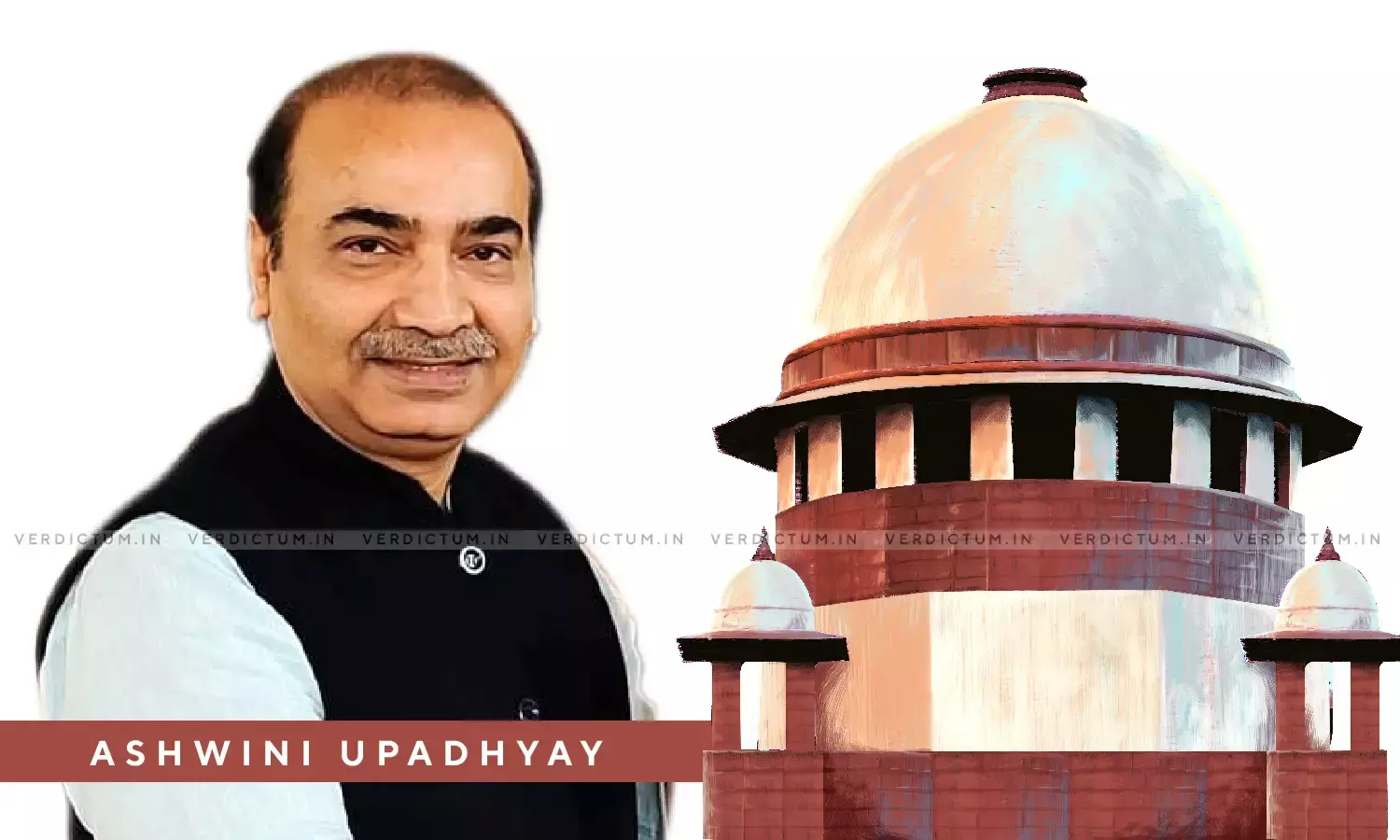"It Is A Matter Of Gender Justice" Ashwini Upadhyay Submits, Supreme Court Adjourns Pleas For Uniform Civil Laws

The Supreme Court today adjourned a batch of cases seeking uniform grounds of divorce, succession, maintenance and adoption. Most of the cases are filed by Advocate Ashwini Kumar Upadhyay.
A Bench comprising Chief Justice DY Chandrachud, Justice PS Narasimha and Justice JB Pardiwala told Upadhyay that he will have to address the Court on the objection that his petitions are not maintainable since he did not disclose that he had approached the Court earlier seeking similar relief.
"This is a matter for the Parliament", the Chief Justice said. "This is a matter of legislative policy and intervention. We will take this as a preliminary issue and we would like you to address us on this", Justice Chandrachud said.
Senior Advocate Gopal Sankaranarayanan appearing for Upadhyay in some of the cases submitted that the Court may either take the cases together or split them as pleas seeking uniform religion-neutral and gender-neutral divorce, adoption, succession and maintenance laws.
Senior Advocate Huzefa Ahmadi submitted that he is appearing for an intervenor Muslim lady and that petition should be dismissed on the ground of suppression since the petitioner had filed pleas seeking identical reliefs earlier and the same was withdrawn after a hearing. "He has not even mentioned that", he said, adding that the petitioner has mentioned the contrary in his affidavit. He said that he has pointed out in a statement that the reliefs sought were identical in the earlier matter. He said that it is an abuse of process.
"There are other petitions, we will have to address the issue", Chief Justice responded.
Ashwini Upadhyay submitted that the same objection was raised before the earlier bench of Chief Justice UU Lalit and the Bench was not inclined. He said that he is only seeking direction to the Law Commission to prepare a report. "It is a matter of gender justice", Upadhyay submitted.
"Reference to law commission must be in aid of something else. There must be legislation", Justice Chandrachud said.
It is a matter of legislative policy, ASG K M Nataraj submitted on behalf of the Center.
The petition filed by Advocate Ashwini Kumar Upadhyay states that the divorce procedure is very complex and neither gender-neutral nor religion-neutral. While Hindus are governed under Hindu Marriage Act 1955. Muslims, Parsis and Christians have their own personal laws.
Couples belonging to different religions have to seek divorce under the Special Marriage Act, 1956. Similarly, if either partner is a foreign national then one has to seek divorce under the Foreign Marriage Act 1969. The distinction promotes inequality against women and offends Articles 14 and 15 of the Constitution, as per the petitioner.
The petition demands uniform grounds for divorce regardless of religion, race, caste or sex throughout the territory of India.
The petitioner also seeking uniform succession law contends that discriminatory grounds of succession and inheritance not only reinforce patriarchal stereotypical notions but contravenes principles of gender justice, equality and dignity of women guaranteed under Articles 14, 15 and 21 of India.
The petitioner also seeks gender-neutral, religion-neutral, uniform laws of maintenance and alimony and adoption, in separate petitions.
Ashwini Kumar Upadhyay v. Union of India & Ors.

